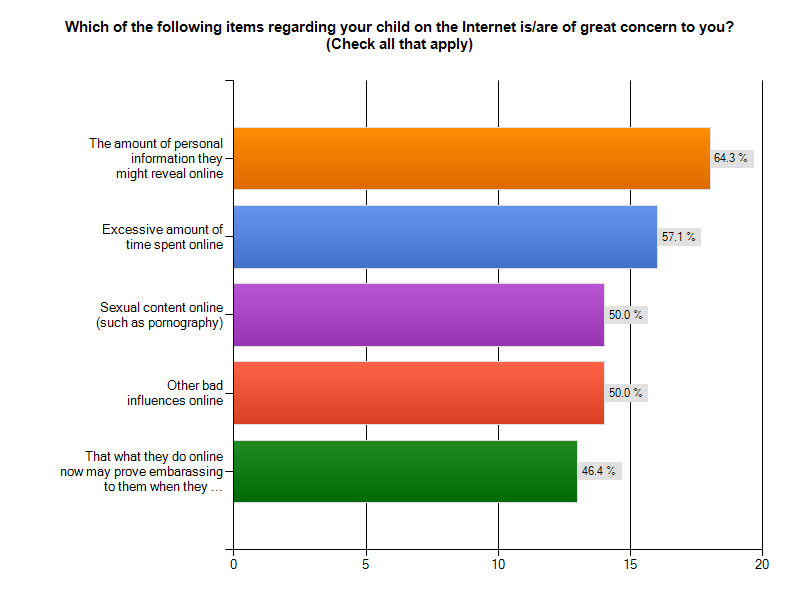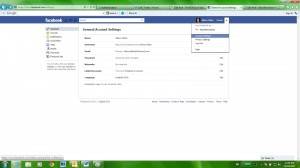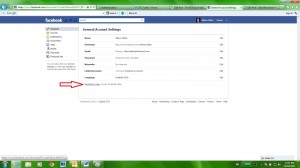This isn’t just your usual boring, annoying reminder to participate in my quick parenting survey about kids and technology. That’s because the initial response has been so positive, and I’d like to share a few of the emerging facts BEFORE I urge you all to: 1) spend two minutes to complete it yourself (if you haven’t already) and 2) to please share/ repost it for your friends and followers.
One of the questions I ask parents was what their top concerns were about having their kids online. Now it’s important to bear in mind that all my respondents, since they found me through my blog, LinkedIn, Facebook, Twitter or some other online source, are already at least somewhat comfortable online, and this may colour their responses somewhat. Nevertheless, their top 5 concerns jive pretty closely with what I’ve been hearing from parents in workshops over the years.
Personal information is really a huge concern, as it should be. Not only do parents worry about the privacy issues, but they are also concerned their kids may jeopardize their future job and social prospects with inappropriate posts now while they are young. Time is a huge issues, and helping our kids control the impulse to be online constantly is a difficult battle to win when most adults struggle with the same issue. Finally, dealing with sexual and violent content on the Internet remains a justifiable concern, as research indicates in desensitizes our kids to these things at younger and younger ages. There are other concerns listed here as well, and some parents were kind enough to share their own fears with me as well.
These results are fascinating to me, and I plan to spend a lot more time discussing them individually, but I need your help. The amount of data I’ve collected is a great start, but I’m still limited by what I can say until I get the numbers of responses up there. Please help me out by sending the link (https://www.surveymonkey.com/s/RWRparentsurvey) to your friends and colleagues, sharing it on your walls or Twitter accounts, or even putting it at the bottom of your own blog posts.
In return, I promise to write about the results and offer some practical suggestions to parents and teachers based on current research, best practices and whole load of common sense. Because as a mom of three pre-teens/ teens myself, I know how confusing it can be to stare at a lot of scary numbers. My goal is to translate those charts into practical steps that will make sense in your home, with your kids.






